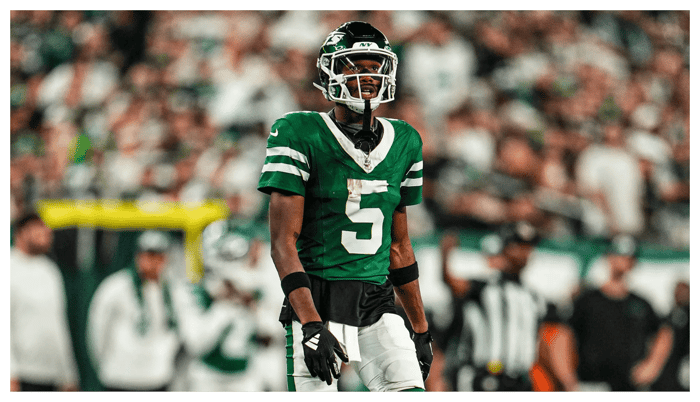Low Holds in Sports Betting: A Complete Guide to Smarter Betting
Sports betting is all about value. Whether you’re chasing +EV (positive expected value) bets, looking for arbitrage opportunities, or simply trying to get the best price, your long-term success depends on minimizing the sportsbook’s advantage. One of the most overlooked — yet powerful — ways to gain that edge is by targeting low holds.
In this guide, we’ll break down exactly what low holds are, why they matter, how they can be used for account health and bankroll management, and how you can apply them to your own betting strategy.
What Are Low Holds?
In sports betting, the hold (sometimes called “juice” or “margin”) refers to the percentage edge a sportsbook builds into its odds. It’s essentially how books ensure profitability over the long run, regardless of the game outcome.
High hold markets = Sportsbooks keep a bigger slice of the pie.
Low hold markets = Bettors get more value since the sportsbook’s margin is smaller.
Example of a Hold
Let’s say a sportsbook offers odds of:
Team A: -110
Team B: -110
At these odds, the hold is around 4.76%. But if you find a book offering -105 / -105, the hold drops closer to 2.38%. That may seem small, but over thousands of bets, it makes a massive difference in profitability.
Why It Matters?
Every bettor, from casual to professional, should care about holds. Here’s why:
More Value per Bet
Low holds mean less vig, and less vig means you’re getting closer to the true odds.Better for Long-Term Profitability
Even small differences (like betting at -105 instead of -110) can swing your long-term ROI from negative to positive.Prime for Arbitrage and EV Betting
When the hold is low, bettors can more easily identify arbitrage opportunities (guaranteed profits) or +EV bets (profitable over time).Account Health Benefits
Sportsbooks prefer to see action that looks natural. Betting low-hold markets allows you to cycle money across sportsbooks without drawing red flags. It’s an effective way to move funds, complete wagering requirements, and keep accounts in good standing.How to Calculate Hold
The formula for calculating hold on a two-way market is:
Hold % = (1 / Implied Odds of Team A + 1 / Implied Odds of Team B - 1) × 100
For example, with odds of -110 / -110:
Team A implied probability = 52.38%
Team B implied probability = 52.38%
Total = 104.76%
Hold = 4.76%
The closer that total is to 100%, the lower the hold.
A tool like Pick The Odds can automatically do this for you.
Where to Find Them:
1. Market Type Matters
Major markets (NFL spreads, NBA totals, MLB moneylines) typically have lower holds than niche props or small-market games.
Futures and long-shot markets often carry extremely high holds, sometimes exceeding 20-30%.
2. Line Shopping
Using an odds comparison tool (like Pick The Odds) helps you spot sportsbooks offering the lowest vig. One book might be -110 / -110, while another is -105 / -105 on the same game.
3. Reduced Juice Books
Some sportsbooks specialize in reduced juice lines (like -105 instead of -110). These naturally provide lower holds and better long-term value.
4. Low Hold Screens
Oddsmakers can’t align perfectly across all books. By tracking differences in odds, bettors can spot markets where the hold is artificially low — creating both value and Low Hold opportunities.
How to Use Low Holds in Your Betting Strategy
Bet Smarter, Not Harder
Don’t just look for the best team or side — always check the hold first. A low hold instantly improves your probability of winning long-term.Prioritize Major Markets
While prop betting is fun, it often comes with huge holds. Serious bettors focus on spreads, totals, and moneylines in popular sports, where the margins are much thinner.Stack with EV Betting
Low holds don’t guarantee +EV bets, but they’re often a strong indicator. A fair-value bet in a low-hold market gives you a better chance at profitability than the same bet in a high-hold market.Build Low-Risk Parlays
Low hold legs reduce the vig built into parlays. It doesn’t make parlays inherently profitable, but it does give you a stronger foundation.
Account Health
One of the underrated advantages of low holds is their role in maintaining healthy sportsbook accounts. Sportsbooks can limit or restrict bettors who only target clear arbitrage plays or hammer obvious market inefficiencies. Low holds provide a middle ground.
Moving Money Between Sportsbooks
If you want to shift bankroll from one sportsbook to another, a low hold market is the perfect tool. For example:
Bet Team A at Sportsbook 1
Bet Team B at Sportsbook 2
Because the hold is low, you’ll lose very little to the vig. The end result? Your money is effectively transferred between sportsbooks without the need for withdrawals or deposits — and without triggering unnecessary account scrutiny.
Clearing Playthrough or Bonus Requirements
Many sportsbooks require bettors to “play through” bonus money before withdrawal. Low hold bets are ideal for this because they:
Limit the amount lost to vig while meeting wagering requirements.
Provide near break-even betting conditions, minimizing bonus erosion.
Keep your account looking active and natural, reducing the chance of restriction.
By using low holds, you’re essentially turning what could be a costly playthrough into a low-risk process.
Real Example of a Low Hold
Let’s look at an NFL game where the market odds are:
Chiefs: -105
Chargers: -105
Here, the sportsbook’s margin is 2.38%, which is very low compared to the industry standard. Contrast that with another book offering:
Chiefs: -115
Chargers: -115
That market has a 6.67% hold — almost 3x worse.
If you’re consistently betting into the first market instead of the second, you’ll drastically improve your long-term results. Plus, you can use that low-hold matchup to transfer money between two sportsbooks if needed.
Low Holds vs. Arbitrage vs. EV Betting
Low Holds: The foundation. A smaller margin means more favorable odds for bettors.
Arbitrage: Exploits differences between books in low-hold spots to lock in guaranteed profit.
EV Betting: Uses probabilities and line discrepancies to identify bets with long-term positive expectation — often found in low-hold markets.
In other words: Low holds are the entry point. They open the door to both arbing and EV strategies — while also keeping accounts sustainable.
Tools for Finding Low Holds
Manually calculating holds can be time-consuming. That’s where tools like Pick The Odds come in. By scanning multiple sportsbooks in real time, you can instantly see:
Which markets have the lowest holds.
Where arbitrage opportunities exist.
Which bets are +EV.
Which spots are best for playthrough or account cycling.
For bettors who take this seriously, using a tool like this isn’t optional — it’s essential.
Final Thoughts: Low Holds as Your Betting Edge
Most bettors focus too much on picking winners and not enough on picking prices. That’s the key mistake. By targeting low hold markets, you reduce the sportsbook’s edge, improve your long-term ROI, and set yourself up for sustainable success.
Even better, low holds can help with account health, money movement, and bonus clearing — making them not just profitable, but practical.
When combined with line shopping, arbitrage, and EV betting, low holds become one of the sharpest tools in your betting arsenal.
So next time you’re placing a wager, don’t just look at the matchup — look at the hold. That small difference could be what turns you from a casual bettor into a profitable one.
Low Holds in Sports Betting: FAQ
1) What is a low hold?
A low hold is a market where the sportsbook’s built-in margin, also called vig or juice, is minimal. This means the odds offered are closer to the true probability of an outcome, giving bettors more value per wager.
2) Why do low holds matter?
Low holds matter because they increase the value of each bet, improve long-term profitability, make it easier to find arbitrage or +EV opportunities, and help maintain account health while meeting bonus or playthrough requirements.
3) Where can I find low hold markets?
Low hold markets are typically found in major sports such as NFL, NBA, and MLB. Bettors can also find low holds by line shopping across multiple sportsbooks, using reduced-juice books that offer lines like -105 instead of -110, and monitoring odds screens or tools like Pick The Odds to track favorable opportunities in real time.
4) How should I use low holds in my betting strategy?
When betting, it is important to check the hold before placing a wager. Focusing on spreads, totals, and moneylines rather than high-hold prop bets provides more value. Combining low hold bets with EV strategies improves long-term profitability, and using low-hold markets can reduce vig in parlays, help move bankroll between sportsbooks, and complete bonus playthroughs with minimal risk while avoiding unnecessary scrutiny.
5) Are there tools to help find these opportunities?
Yes, tools like Pick The Odds can scan multiple sportsbooks in real time to identify markets with the lowest holds, arbitrage opportunities, and +EV bets. These tools make it much easier for serious bettors to find the best value and manage their accounts effectively.



